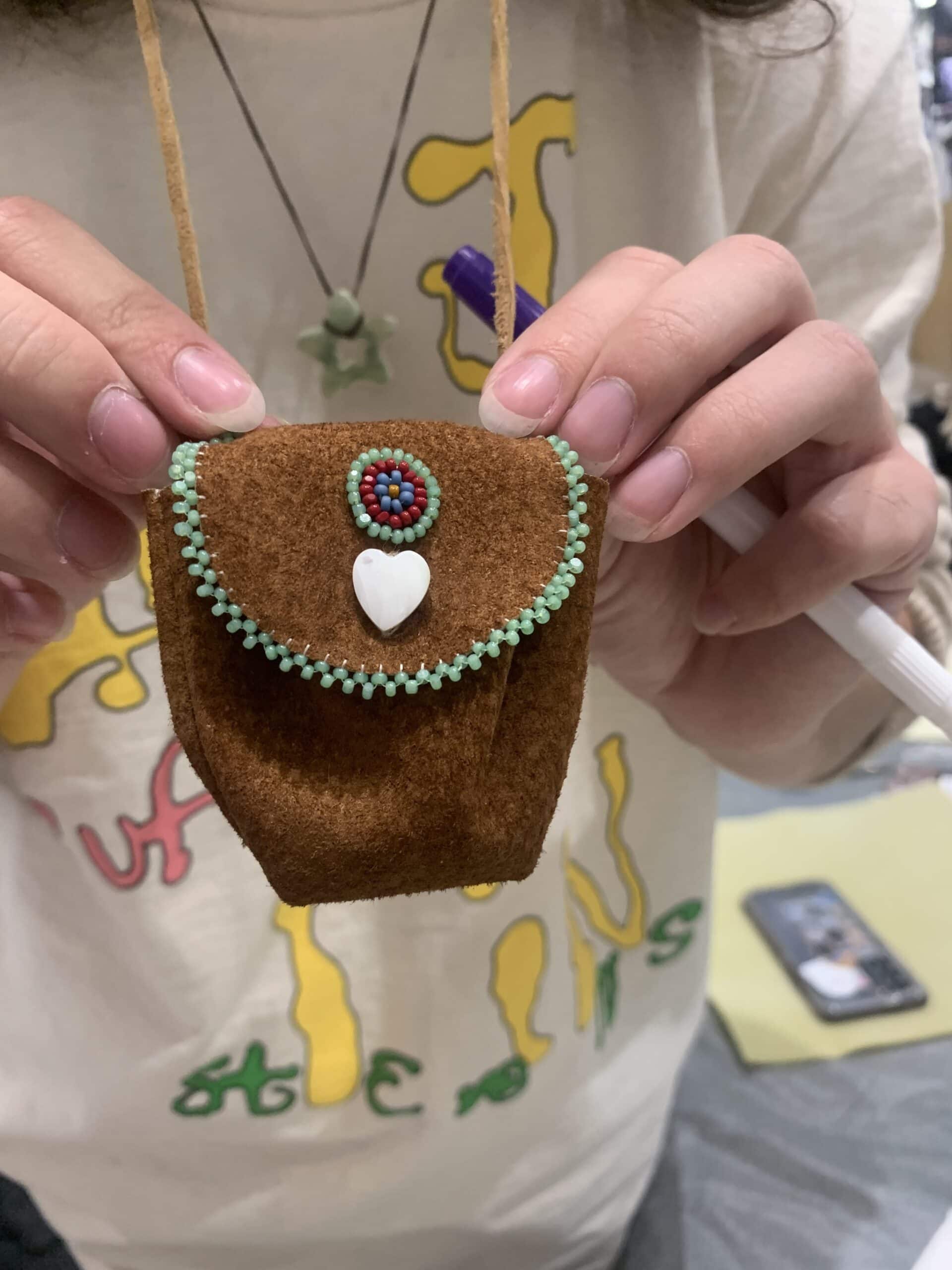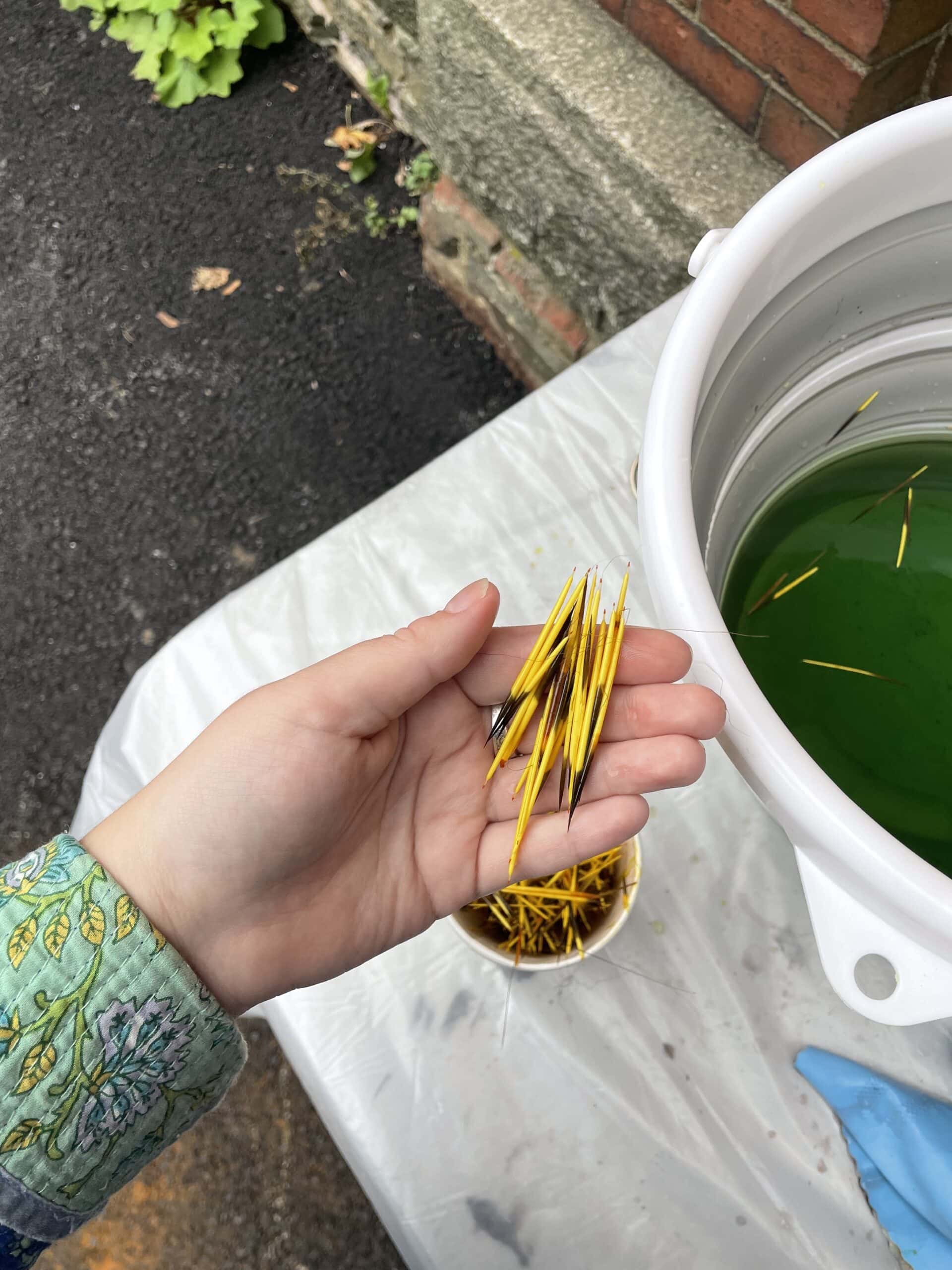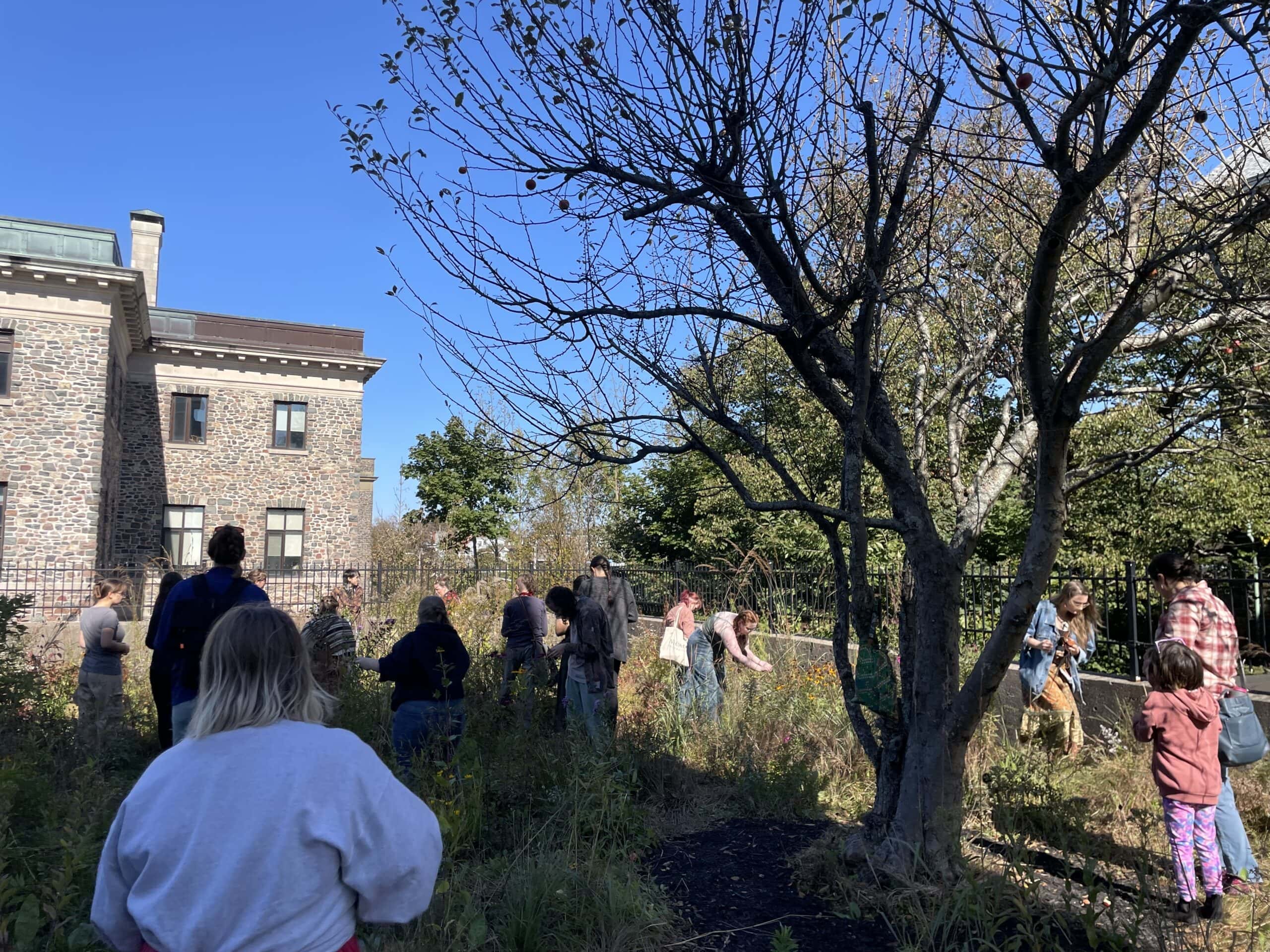TL;DR
Seeding & Beading: A Community Land-Based Method to Counter-Memorializing Sites of Difficult History is a MAED thesis project, that looks at community and land-based practices to transform our relationships to difficult sites of histories.
Details
To highlight the work Creation Grantees are doing in their communities, the Creation Community Grants Team sends out Q&A forms so they can share their experiences creating and carrying out their projects. Today we are featuring responses from Sydney Wreaks andNatalie Laurin of Seeding & Beading: A Community Land-Based Method to Counter-Memorializing Sites of Difficult History.
Community: Halifax
Grant Type: Partnership Stream- Urban Parks
Q : Tell us about your group and project!
A : Seeding & Beading: A Community Land-Based Method to Counter-Memorializing Sites of Difficult History is a MAED thesis project, that looks at community and land-based practices to transform our relationships to difficult sites of histories. The hope is to counter memorialize these spaces by spending time as a community, learning to challenge colonial narratives together and self-determine as communities our relationship to the land; while also considering how we acknowledge and care for the spaces that have held difficulties histories. Difficult histories are many times tied to colonial systems of power, and many times are erased, or just highlight the euro-centred historical perspective.
We held a series of workshops that brought Indigenous Youth and allies within Kjipuktuk together to work on a community garden. In the Spring we hope to plant a garden downtown on a historical and contemporary difficult site of history, to mark the space and change the ways in which we engage with the space. As well as making plant medicine free and accessible to Indigenous peoples.

Q : As the youth running the project, what impact do you hope it will have?
A : I hope this project challenges colonial histories and what histories we choose to memorialize on unceded lands. As well as how we understand our relationship to the land being within the city. Having a garden to hold space and bring community together to care for the land.

Q : What is something you have learned?
A : We hosted many workshops, bringing together land-based practices like seed collecting, and seed sowing. As well as a series of quill-based workshops. We were able to invite Crystal Gloade of Millbrook First Nations, to host a quill medallion workshop. Leading up to that we spent time cleaning, sorting and dying quills. It was such a great experience getting to learn these practices together.
“[W]e spent time cleaning, sorting and dying quills. It was such a great experience getting to learn these practices together.”

“I hope this project challenges colonial histories and what histories we choose to memorialize on unceded lands. As well as how we understand our relationship to the land being within the city.”
Q: Did you have any challenges running your project?
A: I think our biggest challenge was trying to find the right dates and times to host our workshops. We wanted to be mindful that people didn’t have to feel pressured to make it to a workshop if they were feeling burnt out. And we always made sure to have food and beverages so that people could take the time to rest, just hang out and eat some food. And that it’s great to be able to have a new skill or experience, but that there was no pressure to complete anything during each workshop.
This project was funded in partnership with Parks Canada.